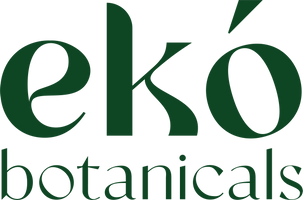
As women approach peri-menopause and menopause, a myriad of changes occur within their bodies, and one often overlooked aspect is the impact on the skin. Estrogen, a key hormone in the female reproductive system, plays a vital role in maintaining skin health. There is an intricate connection between estrogen loss and the transformations that menopausal skin undergoes.
1. Understanding Estrogen's Role in Skin Health
Estrogen is not merely a reproductive hormone. It also influences various tissues throughout the body, including the skin. In the skin, estrogen contributes to collagen production, moisture retention, and overall elasticity. Collagen, a protein that provides structure to the skin, diminishes with age, and the decline in estrogen exacerbates this process. A woman's estrogen levels peak in her mid- to late-20s then decline by 50% by the time she is 50 (Edwin D Lephart). Estrogen declines more rapidly after menopause. Menopause is defined as 12 consecutive months without a period.
Collagen Depletion
Estrogen stimulates the production of collagen, the protein responsible for maintaining skin firmness and suppleness. As estrogen levels decline during menopause, collagen production decreases, leading to sagging skin and the formation of fine lines and wrinkles.
Decreased Hydration
Estrogen plays a role in maintaining skin moisture by influencing the production of hyaluronic acid. Reduced estrogen levels can result in decreased hyaluronic acid, leading to dryness and increased susceptibility to irritation and inflammation.
2. Common Skin Changes in Menopause
Understanding the specific skin changes associated with estrogen loss during menopause is crucial for developing effective skincare routines tailored to this life stage.
Thinning Skin
Estrogen loss can contribute to a reduction in the thickness of the skin. Thinning skin is more prone to bruising and tearing, and wounds may take longer to heal. Adequate sun protection and gentle skincare practices become paramount to protect the skin's integrity.
Hyperpigmentation
Uneven skin tone and increased pigmentation, commonly known as age spots or sunspots, may become more pronounced during menopause. Estrogen loss can affect melanin production, leading to these skin discolorations.
3. Radiant Solutions for Menopausal Skin
While menopausal skin changes are inevitable, adopting a targeted skincare ritual can help mitigate some of the effects and promote overall skin health.
Moisturize and Hydrate Regularly
Hydration is key for mature skin. Use serums with ingredients like hyaluronic acid to replenish hydration and improve skin elasticity and moisture with organic plant oils rich in omega fatty acids, vitamins and minerals. Avoid harsh, drying synthetically derived products that can exacerbate dryness.
Hydration and Moisture Boosting Serum and Oil Set

€164,95
€188,95
Ultimate Hydration Our Hydration and Moisture Set is the ultimate solution for achieving radiant and dewy skin. With a carefully curated selection of products designed to replenish moisture and nourish your skin, this set is perfect for those looking to… read more
Sun Protection
Protecting the skin from harmful UV rays is crucial. Use a broad-spectrum sunscreen with at least SPF 30 daily, even on cloudy days. Sunscreen helps prevent further collagen breakdown and minimizes the risk of hyperpigmentation. Use a mineral sunscreen, as they are made with natural ingredients and are free of synthetic chemicals, so they're super gentle on the skin. They're also non-comedogenic so they won't clog pores, making them ideal for skin prone to acne and breakout.
Collagen-Boosting Ingredients
Skincare products containing collagen-boosting ingredients such as retinoids, peptides, and vitamin C help stimulate collagen production and improve skin texture.

Conclusion
Menopausal skin changes are a natural part of the aging process, but understanding the role of estrogen loss provides valuable insights into how to care for your skin during this transformative hormonal changing period. By adopting a proactive and informed approach to skincare, women can embrace the journey of menopause with confidence, maintaining healthy and radiant skin that reflects the strength and wisdom gained through the years. Remember, nurturing your skin is a form of self-care that goes beyond aesthetics, contributing to overall well-being during this significant life transition.

